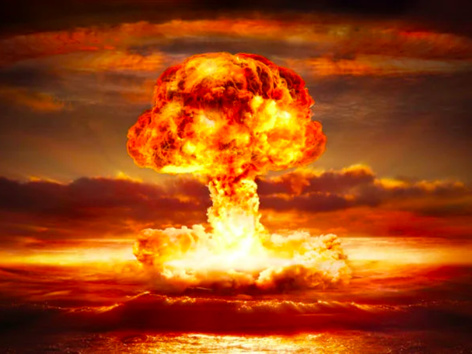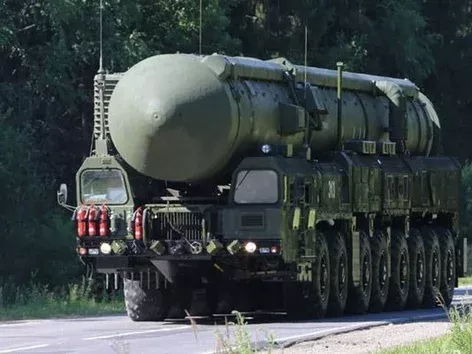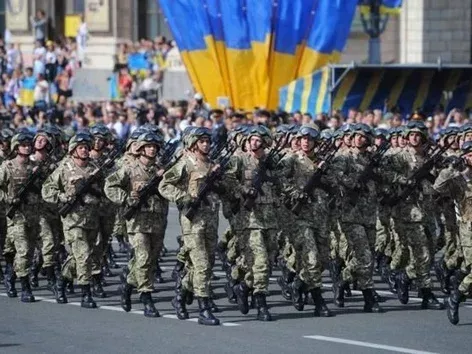
European countries have different approaches to preparing their citizens for possible crises and military conflicts. Some develop technological solutions, others teach basic survival skills or build fortifications. Find out more about how Europe is preparing its population and what it is doing to ensure the safety and security of its citizens
Rising tensions in the world caused by russia's attack on Ukraine, conflicts in the Middle East and Georgia have prompted many European countries to take active steps to strengthen their security. Some have focused on developing modern shelters and warning systems, while others have focused on educating the population on the basics of survival. How Europe is preparing for possible crises and what it is doing to protect its citizens is described in the article below.
How are European countries preparing for possible crises and military threats?
Germany
Germany has started developing a mobile application to help citizens quickly find the nearest bunkers in case of a threat. This is part of a national ‘bunkering’ plan initiated by the Federal Office for Civil Protection.
As a large number of public shelters in the country were dismantled after the end of the Cold War, the country is rebuilding and modernising such facilities. This is a necessity, as according to official figures, there are currently less than 600 public shelters in Germany, which can only accommodate 480,000 people.
Subways, school basements, government offices, and even private garages are being used for bunkering. German households are encouraged to equip their own basements, and builders are required to design safe shelters in new buildings.
At the same time, the government plans to introduce training programmes for the population so that citizens know how to act in emergency situations.
Sweden
Sweden, which has extensive experience in informing citizens about crisis preparedness, has released a new 32-page brochure, ‘If Crisis or War Strikes’. The document highlights the importance of collective resilience. Citizens are urged to contribute to the defence of the country's independence and democracy.
The brochure explains how to act in case of emergency: where to find a bomb shelter, how to use a toilet in the absence of water, how to store food and water at home. It is recommended to have a supply of warm clothes, alternative heating, a battery-powered radio and long-term storage food.
Despite the practicality of such materials, the reaction of the population was mixed. While some Swedes believe that it is good to be prepared, others admit that they do not take this information seriously.
Don't want to miss important updates and useful materials? Subscribe to our weekly newsletter!
Norway
Norway also actively informs citizens about preparing for possible crises. The Civil Defence Authority has published a booklet with advice on what to do in the event of a water supply failure, cyber-attack or even war.
The authors of the booklet recommend that citizens prepare a week's worth of long-life food. The list includes crackers, canned beans, sandwich spreads, protein bars, dried fruit, cocoa products, sweets, butter cookies and various nuts.
In addition, the country advises people to form a home first aid kit with basic medicines, including prophylactic drugs to protect against radiation exposure. Similar recommendations apply to financial preparedness - Norwegians are advised to have several payment cards and keep a certain amount of cash at home just in case.
Finland
Finland, which shares a border with russia, has developed an online guide called Preparing for Incidents and Crises. Citizens are encouraged to test their preparedness for crises using 72tuntia.fi, which offers to check their skills and stockpiles of essentials.
The site provides recommendations on how to act in the event of forest fires, internet collapse or military conflict. Citizens are also taught how to build psychological resilience and improve cybersecurity.
Donald Tusk visits the construction of the Eastern Shield
Polish Prime Minister Donald Tusk personally inspected the first completed section of the large-scale Eastern Shield defence project. This system of fortifications, being built on Poland's border with russia and Belarus, is designed to ensure peace and stability in the region.
The project involves the construction of fortifications, military infrastructure, intelligence and drone defence systems. Tusk stressed that this project is an investment in the security of Poland and the entire Baltic region.
The Eastern Shield is not just about fortifications. It is about creating conditions under which residents of border regions will feel protected, and a possible aggressor will realise that their goals are unattainable.
When travelling or staying in Ukraine during unstable times, take care of your safety in advance. An insurance policy covering war risks is a reliable protection against unforeseen situations related to military operations in Ukraine.
Just a reminder. Today, the world is facing new challenges, and the threat of a nuclear explosion no longer seems to be just a theory. In such circumstances, preparation becomes not just a choice, but a necessity. Read more about the right actions to take in the first minutes after a nuclear explosion and how to prepare for it here.
Photo: Adobe Stock
Want to know more? Read the latest news and useful materials about Ukraine and the world in the News section.
We recommend purchasing it for a safe and comfortable trip to Ukraine:
Visit Ukraine Insurance – insurance covering military risks for entry and travel in Ukraine;
Visit Ukraine Car Insurance – car insurance with extended coverage in Ukraine;
Visit Ukraine Legal Advice – comprehensive legal support on entry to Ukraine;
Visit Ukraine Tickets – bus and train tickets to/from Ukraine;
Visit Ukraine Tours – the largest online database of tours to Ukraine for every taste;
Visit Ukraine Hotels – hotels for a comfortable stay in Ukraine;
Visit Ukraine Merch – patriotic clothing and accessories with worldwide delivery.
© 2018-2024, Visit Ukraine. Use, copying or reprinting of materials on this site is permitted only with a link (hyperlink for online publications) to Visit Ukraine.
All rights reserved.
Recommended articles
1 min
Krieg
A nuclear explosion: how to prepare to survive and how to act after?
Today, the world is facing new challenges, and the threat of a nuclear explosion no longer seems to be just a theory. In such circumstances, preparation becomes not just a choice, but a necessity. Learn about the right actions to take in the first minutes after a nuclear explosion and get up-to-date advice on how to prepare for it
27 Nov. 2024
More details2 min
Krieg
Russia launches its first ever intercontinental missile strike. The target was the Ukrainian city of Dnipro. Everything you need to know about the strike, the missile used by the Russians, and why Putin took this step, is in this article
21 Nov. 2024
More details2 min
Travel
Is Lviv safe for tourists now?
Lviv has been and remains a symbol of Ukrainian culture, history and hospitality. But in the midst of war, security is becoming a key issue for those planning a trip to this tourist city. Find out what tourists and visitors to Lviv should consider to enjoy this unique part of Ukraine
26 Nov. 2024
More details1 min
Krieg
Personnel changes in the Armed Forces of Ukraine: Zelensky replaced the Commander of the Land Forces
Today, the Land Forces of Ukraine have learned the name of their new commander. Here's who Zelenskyy appointed to the post and what this general has already done in the army
29 Nov. 2024
More details

